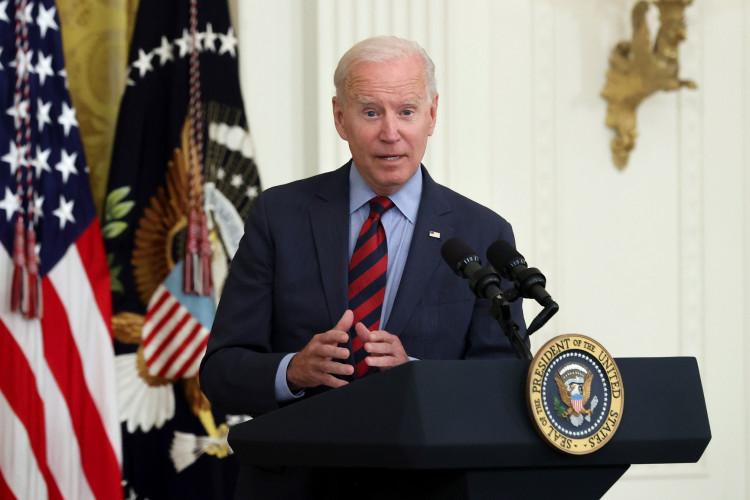President Joe Biden publicly stated that he does not support Israel conducting strikes on Iranian nuclear sites, marking a clear stance as tensions between Israel and Iran continue to escalate.
Speaking to reporters at Joint Base Andrews, Biden addressed the possibility of Israeli retaliation targeting Iran's nuclear program, responding directly with, "The answer is no." This comment came as the U.S. and its allies, particularly within the Group of Seven (G7), weighed potential additional sanctions against Tehran in response to its growing aggression in the region.
Biden's remarks followed a recent Iranian missile attack on Israel. While the Iranian offensive raised concerns about the situation escalating further, the U.S. President emphasized the importance of proportionality in Israel's response. "All seven of us agree that they have a right to respond, but they should respond proportionally," Biden added, underscoring that the international community seeks to prevent further destabilization of the region.
In the aftermath of the Iranian attack, White House officials, including national security adviser Jake Sullivan, were in close contact with Israeli counterparts to discuss subsequent steps. Sullivan described Iran's missile strike as a "significant escalation," although he noted the attack was largely "defeated and ineffective." Despite the limited success of the strike, the missile barrage highlighted the deepening tension between Israel and Iran, particularly as the conflict between Israel and Hezbollah, a major proxy for Iran, has intensified over the past year.
The Iranian attack followed the death of Hezbollah leader Hassan Nasrallah in an Israeli strike on Beirut just days earlier. Nasrallah's death marked a significant blow to Hezbollah's command structure, which had already been severely weakened due to Israeli military operations targeting key figures within the group.
Iran's missile strikes, which were later confirmed by the Islamic Revolutionary Guard Corps (IRGC), were claimed to be in retaliation for both the killing of Nasrallah and Hamas Political Bureau chief Ismail Haniyeh, who was killed in Tehran in July. The IRGC stated that "dozens of ballistic missiles" had been launched in "self-defense" and as a response to what it called Israel's continued aggression, supported by the United States.
In the wake of the attacks, Israeli Prime Minister Benjamin Netanyahu reaffirmed Israel's determination to respond to any assaults on its sovereignty. "The regime of Iran does not understand our determination to defend ourselves," Netanyahu stated. "They will understand. We will stand by the rule we established: Whoever attacks, we will attack them." His comments reflect Israel's long-standing policy of responding forcefully to any threats to its national security, particularly from Iran and its allies.
Despite Netanyahu's strong words, President Biden's caution against a direct Israeli strike on Iran's nuclear facilities indicates the U.S. administration's desire to contain the situation through diplomacy and proportional responses. In the meantime, Biden reiterated full U.S. support for Israel. "Make no mistake, the United States is fully, fully supportive of Israel," Biden said, reiterating the strong bilateral relationship between the two nations.
As tensions mount, the Biden administration is actively working to protect U.S. interests and personnel in the region. Following the attacks, Biden and Vice President Kamala Harris convened their national security team to assess the situation. Biden later posted on X (formerly Twitter), stating, "We discussed how the United States is prepared to help Israel defend against these attacks, and protect American personnel in the region." U.S. Secretary of State Antony Blinken echoed Biden's strong condemnation of the Iranian strikes, calling them "totally unacceptable" and urging the global community to denounce the actions.






